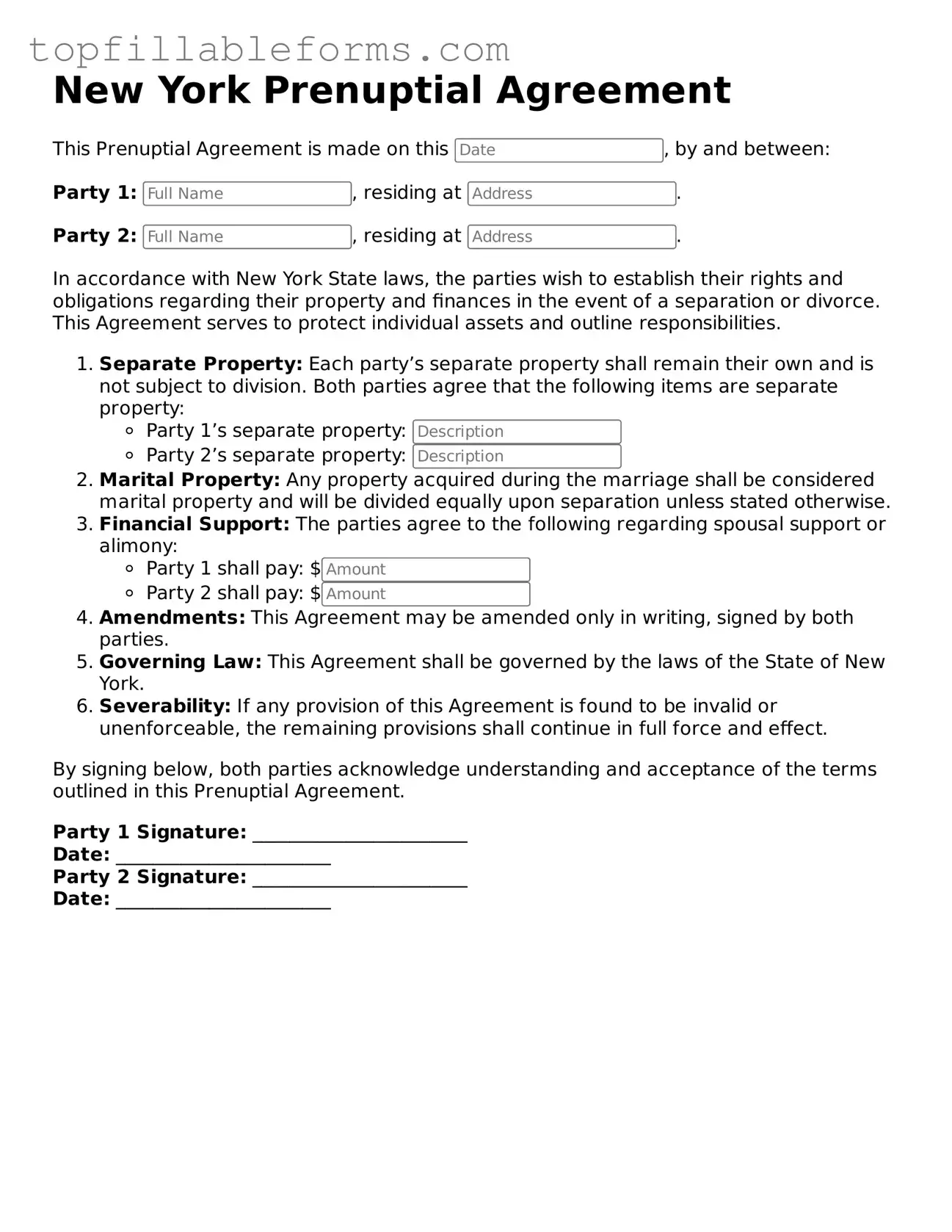Attorney-Verified Prenuptial Agreement Template for New York
A Prenuptial Agreement is a legal document that couples create before marriage to outline the division of assets and responsibilities in the event of a divorce or separation. In New York, this agreement helps clarify financial rights and obligations, providing peace of mind for both parties. Understanding the New York Prenuptial Agreement form is essential for anyone considering marriage and wanting to protect their interests.
Open Prenuptial Agreement Editor Here

Attorney-Verified Prenuptial Agreement Template for New York
Open Prenuptial Agreement Editor Here
Finish the form now and be done
Finish your Prenuptial Agreement online by editing, saving, and downloading fast.
Open Prenuptial Agreement Editor Here
or
▼ PDF File
